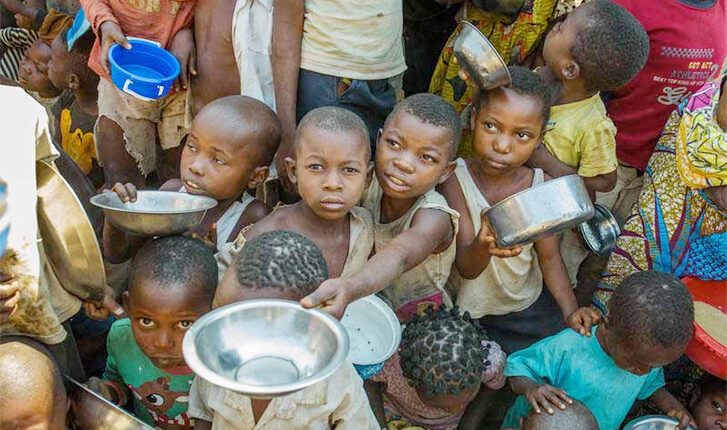EDITORIAL: The need to urgently address poverty crisis in Nigeria
By a layman definition, poverty is a situation in which an individual’s or family’s resources are insufficient to provide a socially acceptable level of life. While poverty exists in every country of the world, the rate differs from country to country.
The poverty in Nigeria, particularly the North West region is one of the reasons why the country is regarded as the headquarters of poverty in the world.
Last month, Mallam Nuhu Ribadu, the National Security Adviser to the President, decried the high level of poverty in Northern Nigeria, especially the Northwest. He stated that as of 2019, the region had the highest poverty rate in the country, with a national average of 40.1 percent.
Read Also: CSO petitions EFCC over economic sabotage at Kano Free Trade Zone
On his part, Governor Uba Sani of Kaduna State said poverty is one of the major reasons insecurity is ravaging the Northwestern part of the country.

“The North-West crisis has to do with banditry and kidnapping; it is an economic problem. When you look at the situation critically, you will agree with me that most of those bandits always kidnap innocent people and ask for ransom.
“And whenever they are given money, they will release the victims in many cases, and in some cases, when there is a delay, they end up taking the lives of those victims.
“And when you look at the situation, you also look at the problems of poverty, unemployment, hopelessness, and lack of education, particularly in the Northwestern part of Nigeria. That is the reason why a lot of these incidents happen.”
Despite the abundant wealth of resources in the country, Nigeria’s poverty rate has grown into a monster. This, in effect, has implications on health, social impact, and increasing food insecurity issues in the country.
READ ALSO: JUST IN: Organised labour declares nationwide strike
In May 2023, Bola Tinubu announced the removal of fuel subsidies during his inauguration. The fuel subsidy was introduced in a bid to keep petrol cheap for citizens as the government covered part of the cost of importation.
But over time the system became a burden, and was exploited by people who had access. It became hard to remove. Some had their interests corruptly wrapped up in it persisting, and the person in the street resisted as they felt it was the only thing the government did for them.
But subsidies distort the whole economy, artificially influencing markets and diverting resources into servicing the subsidy, changing the conditions under which markets operate.
In recent years the government found it was spending huge amounts, the bulk of its revenue, just paying the subsidy. That commitment has made everything else worse.
READ ALSO: Muhammadu Sanusi II leads Jumu’at prayer at Emir’s palace mosque
Ex-president Muhammadu Buhari committed the government to removing the subsidy, but he maintained payments until the end of his term, to cushion the blow, and ensure the blame for what was to follow did not fall on him.
During his inauguration on May 29, President Tinubu announced the removal of subsidy on petrol, claiming it would benefit the poor. The decision was made at a time when Nigerians were just recovering from the menace of a controversial naira redesign policy.
Due to a lack of social protection, the poor and vulnerable are disadvantaged and many households have had to adapt their lifestyles to deal with decreasing incomes by lowering their food consumption, a development exacerbated by high inflation.
Aside from the fact that Nigerians are poor; they also face significant disparities in assets such as education and health, control over public resources, and access to essential services, as well as widespread insecurity.
READ ALSO: PHOTOS: Deposed Emir of Kano, Aminu Ado Bayero observes Juma’at prayer at Nassarawa Palace
Furthermore, the increase in unemployment rate in Nigeria is pushing many below the poverty line, hence, poverty in Nigeria can be seen as artificial and not natural.
It is on this note that the federal government must as a matter of urgency address minimum wage kerfuffle. Already, the Nigeria Labour Congress (NLC) and Trade Union Congress (TUC) have declared a nationwide strike beginning from Monday, June 3rd, 2024 over the tripartite committee’s inability to agree on a new minimum wage and hike in electricity tariff.
All the issues affecting an average Nigerian can be reversed by the government with a view to ensuring more-abundant life for the majority. The poverty affecting the country is man-made and inevitable. The Federal Government, under the leadership of Bola Tinubu must ensure the combination of vision, courage and prudent policies to save Nigerians from poverty.



Comments are closed.